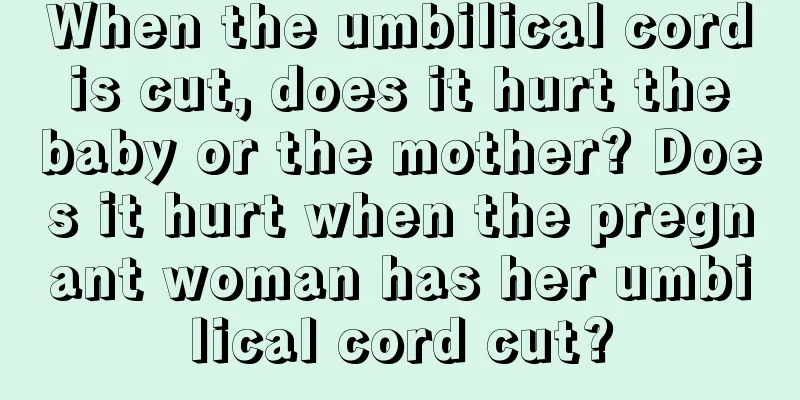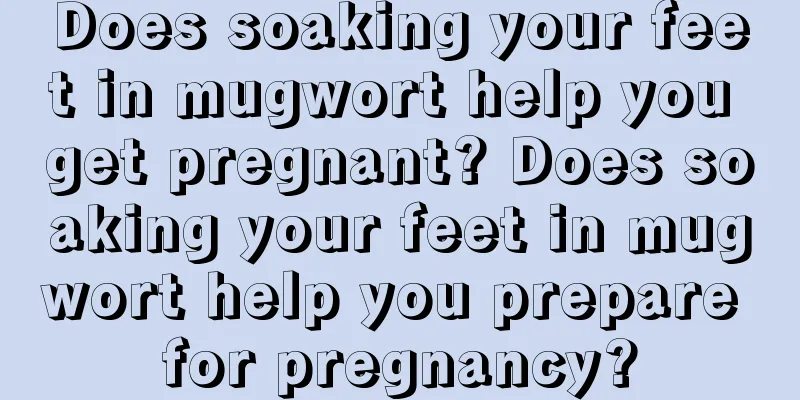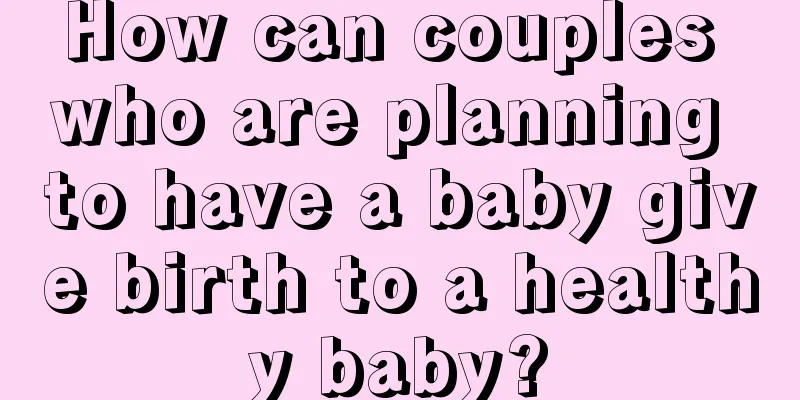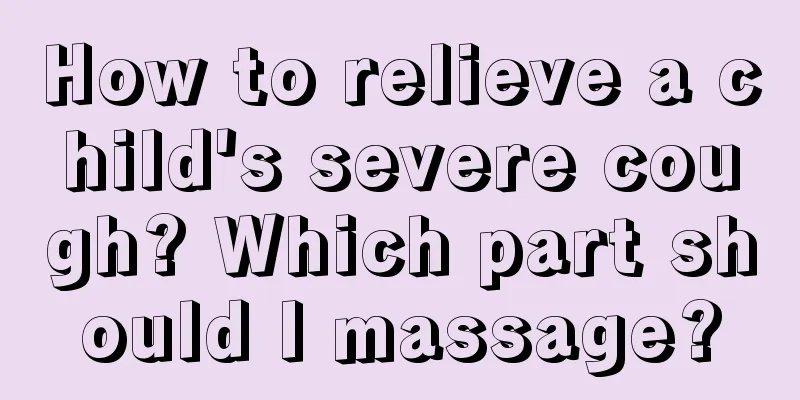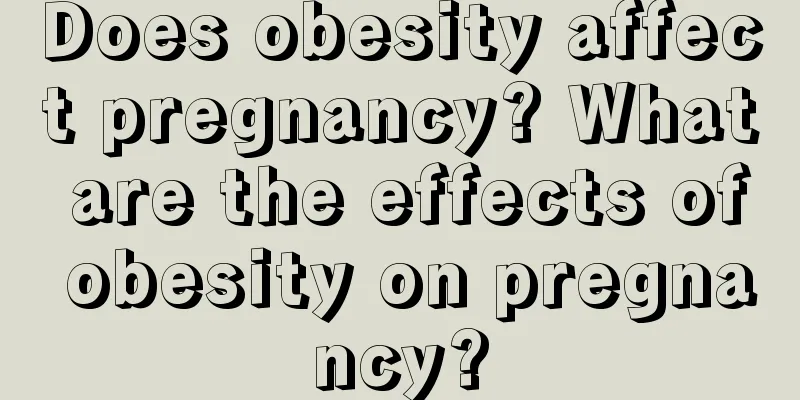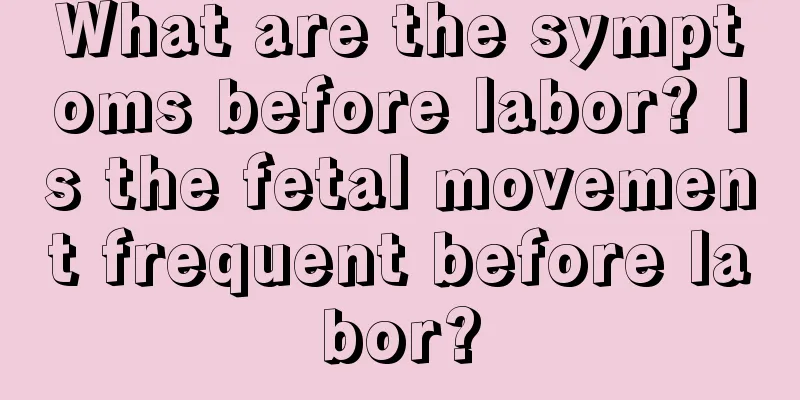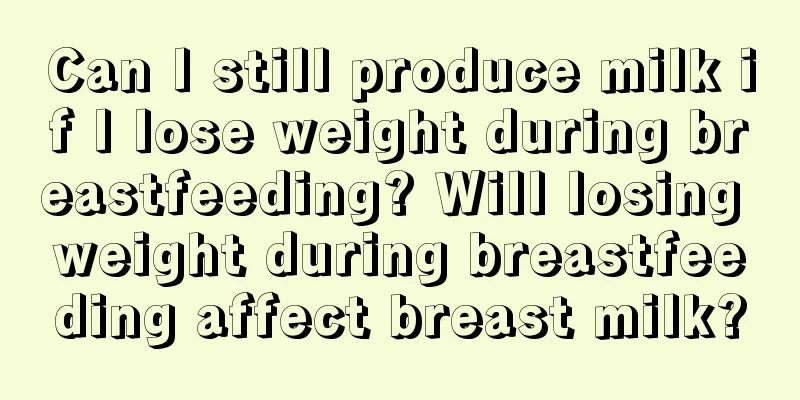What to do if children have a cold and fever? What is the most effective way? What medicine should children take if they have a cold and fever?
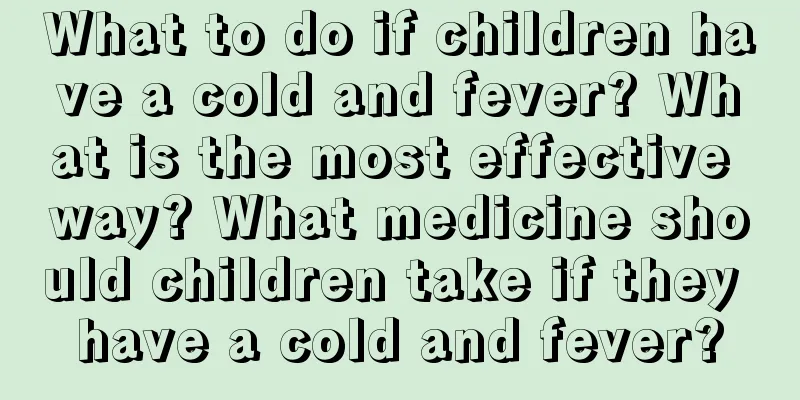
|
Children are usually very naughty and do not know how to take care of themselves. If parents do not take good care of their children, they will easily get sick and catch a cold. Therefore, let's learn about the most effective way to deal with children's colds and fevers. What medicine should children take for colds and fevers? The most effective way to deal with children's colds and feversFind the cause of the cold and carry out targeted anti-inflammatory treatment. First, measure the body temperature. If the mental state is good, you can use physical cooling methods. For children with severe colds and fevers, take the children to the hospital in time. Most colds are viral infections. Antiviral and anti-inflammatory drugs can be used for treatment, which can also relieve the fever. In home care, pay attention to observe the child's body temperature changes, and the child's spirit, appetite, sleep and other general conditions. If the cold and fever are caused by bacterial infection, oral antibiotics are needed for treatment, such as pediatric cefixime granules or pediatric cefadroxil granules. If the body temperature exceeds 38.5 degrees, oral antipyretics are needed to reduce the fever, such as ibuprofen suspension. What medicine should children take for cold and feverChildren with colds and fevers usually take the following types of medicine: First, antipyretics. Generally, if the body temperature exceeds 38.5℃, oral antipyretics can be taken. Commonly used ones are acetaminophen and ibuprofen. Tylenol and Motrin are commonly used in China. If the child has a history of fever and convulsions, that is, every time he has a fever, he is prone to convulsions, the standard should be appropriately relaxed. If the body temperature exceeds 38℃, he should take antipyretics in time; if the child's body temperature continues to be between 38℃-38.5℃, the body temperature does not drop significantly after physical cooling, or the child is in a bad mood, feels uncomfortable all over, etc., he can also take antipyretics for treatment. It is not necessary to stick to the standard of 38.5℃ to take antipyretics. Second, symptomatic treatment, drugs to relieve symptoms, such as cough suppressants, expectorants, asthma relievers, and nasal clearing drugs, should be selected according to the child's symptoms. Third, anti-infective drugs should be selected according to the pathogen of the infection. The judgment should be made based on the results of routine blood tests, C-reactive protein tests and other tests. The correct anti-infective drugs can be selected after the pathogen is clear. For example, if it is caused by bacterial infection, cephalosporin or penicillin drugs are needed; if it is caused by viral infection, interferon may be used; if it is caused by Mycoplasma pneumoniae infection, azithromycin or erythromycin should be used. Therefore, different anti-infective drugs are used for different pathogens. Why do children catch colds and have repeated fevers?The main reason for the baby's repeated fever is considered to be fever caused by bacterial or viral infection, which is common in acute upper respiratory tract infection, bronchitis, bronchopneumonia, etc. The baby should go to the hospital in time to check blood routine, C-reactive protein, procalcitonin, chest phase, etc. In treatment: 1. Give physical cooling, which includes warm water bath, alcohol bath, drink more warm water, etc. 2. Give drugs to cool down. If the baby's temperature exceeds 38.5℃, it is necessary to take oral Motrin, Tylenol, etc. to reduce fever and prevent high fever convulsions. 3. Give anti-infection and antiviral treatment for the primary disease. 4. If the fever recurs within 3 days and there is no obvious improvement, it is necessary to check the child's blood bacterial culture + drug sensitivity, blood smear in time to exclude sepsis and blood system diseases. What to do if children have repeated colds and feversWhen a child has a cold, he or she has symptoms of repeated fever. This shows that the infection caused by the cold is relatively serious and the cold needs to be treated first. At this time, antiviral drugs and cold medicines need to be taken for treatment. Antiviral drugs mainly include Pueraria lobata anti-inflammatory oral liquid, Lanqin oral liquid, four-season antiviral mixture or ribavirin granules. Cold medicines mainly include Anerning granules, acetaminophen pseudoephedrine dispersible tablets or acetaminophen yellow amine granules. If the child's body temperature exceeds 38.5℃, the child also needs to be treated for fever at the same time. Children can take antipyretic and analgesic drugs, such as acetaminophen suspension. After an interval of 4-6 hours, the child can be given the medicine again once, and the medication should not exceed 4 times a day. |
<<: Can babies with diarrhea take probiotics? What are the benefits of probiotics?
>>: At what age is it better for babies to drink milk powder? Why do babies not drink milk powder?
Recommend
When will the melanin deposition fade during pregnancy? Sun protection is essential
Many pregnant mothers are troubled by the fact th...
What kind of exercise can you do before a normal birth to help you have a quick birth? What can you eat before a normal birth to help you have a quick birth?
During pregnancy, expectant mothers should start ...
Will eating persimmons reduce milk production? Will eating persimmons during breastfeeding reduce milk production?
Many women have insufficient milk after giving bi...
How should I take care of myself when the due date is approaching? What are the key points of diet during the confinement period?
When the due date is getting closer, pregnant wom...
Can Shanghai sulfur soap remove athlete's foot? Does Shanghai sulfur soap have a bactericidal effect?
Generally, sulfur soap is used to relieve itching...
Can pregnant women eat wontons? It’s best to make them yourself
Pregnant women can eat wontons, but if they want ...
Why is milking so painful? Correct milking posture and technique
For many new mothers, the most troublesome thing ...
Is it normal for a 3 month old baby to sleep more than 10 hours a day?
My husband has been getting up at night to feed o...
Can pregnant women eat cold dishes? Eat less cold dishes outside
The weather is hot now, and many people like to e...
How often should I stop taking cod liver oil? When is the best time to take cod liver oil?
Cod liver oil is a nutritional supplement that pr...
How to choose a pillow to help your baby sleep better? Choose from these 4 points
Babies in their infancy need more sleep to mainta...
First learn to listen to your child, then he will be obedient
The world of children needs the protection of adu...
How to choose baby food ingredients
As the baby grows older, his diet also needs to b...
What is the AMH test? Rapidly test whether the ovaries are suitable for pregnancy
Fertility is a woman's innate ability and rig...
What should I do if my child keeps coughing? How can I stop my child's cough quickly?
Children usually don't know how to take care ...
